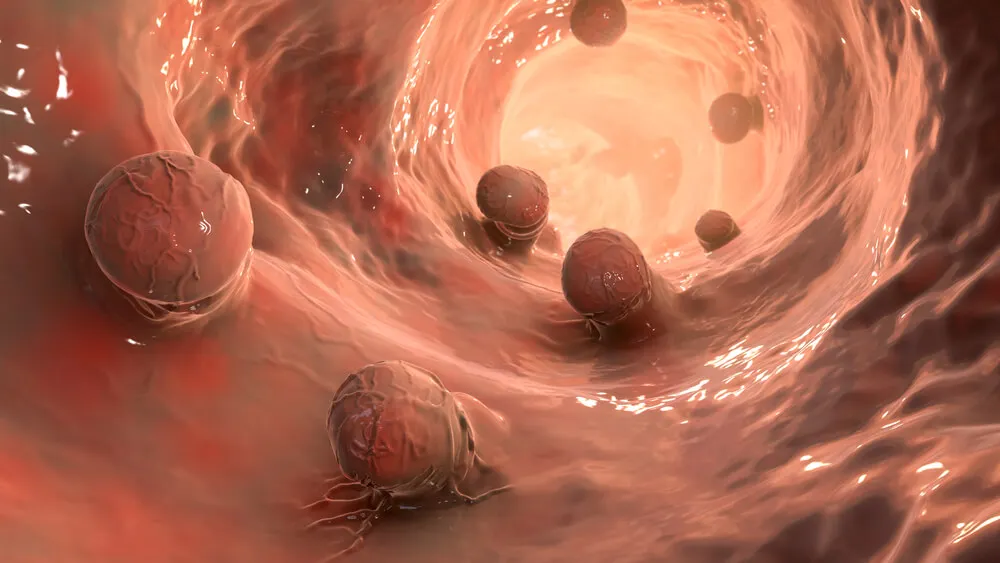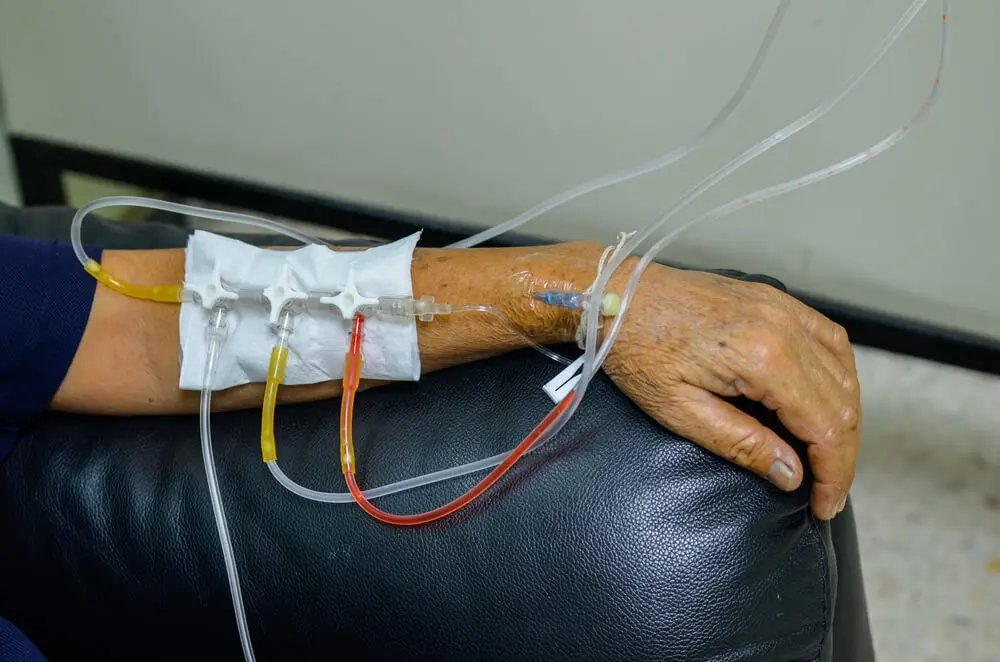Pelé Dies Hospitalized for Colon Cancer: Learn More About this Disease


Written and verified by the doctor Leonardo Biolatto
Pelé (Edson Arantes do Nascimento) was diagnosed with colon cancer more than a year ago, at the end of August 2021. He had gone to the Einstein Hospital in São Paulo (Brazil) for routine check-ups, but the results alerted doctors to the existence of a problem.
With confirmation, on September 4, 2021, he underwent surgery to remove the tumor, along with part of the intestine. This is the usual procedure.
Then, the doctors instructed Pelé to start chemotherapy for colon cancer. This is also part of the protocol for dealing with the disease.
The chemotherapy sessions were repeated and the ex-football player visited the hospital frequently. Some of these times he required longer hospitalizations, due to the effects of the drugs or due to complications inherent to the evolution of the disease.
At the end of November, in a new control, Pelé had to be hospitalized and could no longer leave the institution. At the time, the hospital issued a statement on the matter:
Edson Arantes do Nascimento was admitted to the Hospital Israelita Albert Einstein for a re-evaluation of the chemotherapy treatment for the colon tumor identified in September 2021. After the medical evaluation, the patient was transferred to the common ward, without the need for admission to the semi-intensive care unit or ICU. The former player is in full control of his vital functions and is in a stable clinical condition. -Statement from the Albert Einstein Hospital in São Paulo in November 2022
However, the soccer star deteriorated and could not overcome the progression of his oncological condition. Today, Thursday, his daughter announced on social networks that he had passed away:
Everything we are is thanks to you. We love you infinitely. Rest in peace. -Instagram of Kely Nascimento on Thursday 29/12/2022
What are the most frequent complications of colon cancer?
Pelé’s hospitalizations for colon cancer were several since September 2021. And this is to be expected in the course of an oncological disease such as the one that affected him.
The most frequent complications of this pathology are the following:
- Obstruction of the intestine
- Perforation of the digestive tract
- Lower gastrointestinal bleeding
The first two are caused by the damage caused by the tumor to the wall of the large intestine. The malignant cells, when proliferating, are capable of closing the internal lumen of the digestive tract. Similarly, they also have the ability to produce a hole in the colon, which is serious.
As for bleeding, it is assumed that all malignant colon tumors bleed. However, less than 1% bleed profusely.
Statistical data indicate that complications are to be expected. According to the American Society of Clinical OncologyAccording to the European Cancer Society, 64 % of patients survive 5 years after a cancer diagnosis. This means that approximately 4 out of 10 patients die within this period.
Early diagnosis significantly improves the probability of survival. However, the Argentine Ministry of Health reports that, even with treatment, up to 50% of patients have relapses and 80% of them occur in the first 3 years after diagnosis.
Pelé had been diagnosed with colon cancer for a little over a year and it was logical that he would have relapses.

We think you may be interested in reading this, too: Kirstie Alley: The Early Signs of Colon Cancer You Need to Know About
What is the treatment for colon cancer?
Treatment for Pelé’s colon cancer began with surgery and was followed by chemotherapy. These approaches are recommended by current medical guidelines.
Surgery
Removal of the tumor is a routine approach. If detected early, localized surgery that removes the malignant cells and a further portion of the surrounding tissue is usually performed.
The option of surgery with laparoscopy is also viable in a number of patients. When possible, its advantage is that the incisions are smaller and the subsequent recovery time is reduced.
In case the tumor is very large and has been detected late, there is the alternative of a colostomy. This involves removing a large part of the intestine and refunctionalizing the area with an opening to the outside, which reaches a bag to collect the excrement. Unfortunately, it may be the only viable solution for certain patients, which complicates the quality of life in the future.
Chemotherapy
Once the tumor has been removed, the medical team directing the treatment has to decide whether to complement it with other therapies. One of the most commonly chosen is chemotherapy, as happened with Pelé.
In general, several drugs are combined in different applications or sessions. It can be a single drug first and then several more, or also a staggering of them in successive stages.
The most commonly used drugs for colon cancer chemotherapy are the following:
- Capecitabine
- Fluorouracil
- Oxaliplatin
The side effects of chemotherapy are quite frequent. The patient usually has vomiting, diarrhea, alterations in the sensitivity of his or her nerves, and extreme fatigue. Although the new drugs have reduced these reactions, they’re more intense in the days following the sessions.
Like this article? You may also like to read: Clea Shearer Beats Cancer: How Was it Identified and Treated in Time?

Radiotherapy
Radiotherapy is usually indicated in colon cancer because of the possibility of tumor recurrence. In other words, X-rays are applied to the tissue that was affected to try to prevent recurrence in the same place.
Sometimes, it’s performed with an external beam that emits radiation from outside the patient’s body, while at other times, brachytherapy is used. The latter consists of placing the radioactive element inside the body so that it acts locally.
Targeted therapy
Targeted therapy is a special form of cancer drug administration. These are drugs that act on processes specific to a tumor, such as the formation of new blood vessels or proteins. There are also options for blocking cancer genes.
Bevacizumab is perhaps the best-known drug in this group. It’s approved in several countries as the initial treatment for colon cancer, along with chemotherapy.
Immunotherapy
Finally, the group of drugs used for immunotherapy bases its action on boosting the patient’s immune system. The aim is to activate the body’s natural defenses and fight cancer.
The most commonly used drugs in this group are the following:
- Pembrolizumab
- Nivolumab
- Ipilimumab
You may also find this article interesting: A New Study Identifies Mouth Bacteria that May Cause Colon Cancer
Pelé fought colon cancer until the end
Pelé’s colon cancer diagnosis found the soccer star at the age of 82. He underwent surgery and followed a 1-year protocol of chemotherapy. He had relapses and complications linked to infections that attacked him with his defenses low.
Finally, Pelé died of multi-organ failure caused by the progression of colon cancer.
Complications were more frequent and, perhaps more serious, because of his age. But the only footballer to have won the World Cup 3 times sent messages from his hospitalization, thanking the tributes that were happening in Qatar:
Friends, I’m in the hospital making my monthly visit. It’s always nice to receive positive messages like this. Thanks to Qatar for this tribute, and to everyone who sends me good vibes. -Post on Instagram from the account @pele
The king of soccer retired from professional activity with 1,301 goals, of which 775 were in official matches. In World Cups, he scored 12 times and with Santos, he won everything that was undertaken. Messages of sorrow and consolation are repeated in the media, remembering the career of the man who was the first world star of the sport.
Nobody can deny that Pelé fought colon cancer until the end. He lived through a particularly difficult year 2022, with successive hospitalizations. His legacy can perhaps be summed up in the last publication made with his official Twitter account:
Inspiration and love marked the path of King Pelé, who today passed away peacefully. Love, love and love, forever. -Twitter account @pele, published on Thursday 29/12/2022″
All cited sources were thoroughly reviewed by our team to ensure their quality, reliability, currency, and validity. The bibliography of this article was considered reliable and of academic or scientific accuracy.
- Clancy, C., et al. “A meta‐analysis to determine the oncological implications of conversion in laparoscopic colorectal cancer surgery.” Colorectal Disease 17.6 (2015): 482-490.
- Hashiguchi, Yojiro, et al. “Japanese Society for Cancer of the Colon and Rectum (JSCCR) guidelines 2019 for the treatment of colorectal cancer.” International journal of clinical oncology 25.1 (2020): 1-42.
- Lloyd, S., et al. “Intraoperative high-dose-rate brachytherapy: An American Brachytherapy Society consensus report.” Brachytherapy 16.3 (2017): 446-465.
- M McQuade, Rachel, et al. “Colorectal cancer chemotherapy: the evolution of treatment and new approaches.” Current medicinal chemistry 24.15 (2017): 1537-1557.
- Pak, Haleh, et al. “Surgical complications in colorectal cancer patients.” Annals of medicine and surgery 55 (2020): 13-18.
- Rosen, Lee S., Ira A. Jacobs, and Ronald L. Burkes. “Bevacizumab in colorectal cancer: current role in treatment and the potential of biosimilars.” Targeted oncology 12.5 (2017): 599-610.
- Zaborowski, Alexandra M., Des C. Winter, and Lydia Lynch. “The therapeutic and prognostic implications of immunobiology in colorectal cancer: a review.” British Journal of Cancer 125.10 (2021): 1341-1349.
This text is provided for informational purposes only and does not replace consultation with a professional. If in doubt, consult your specialist.








